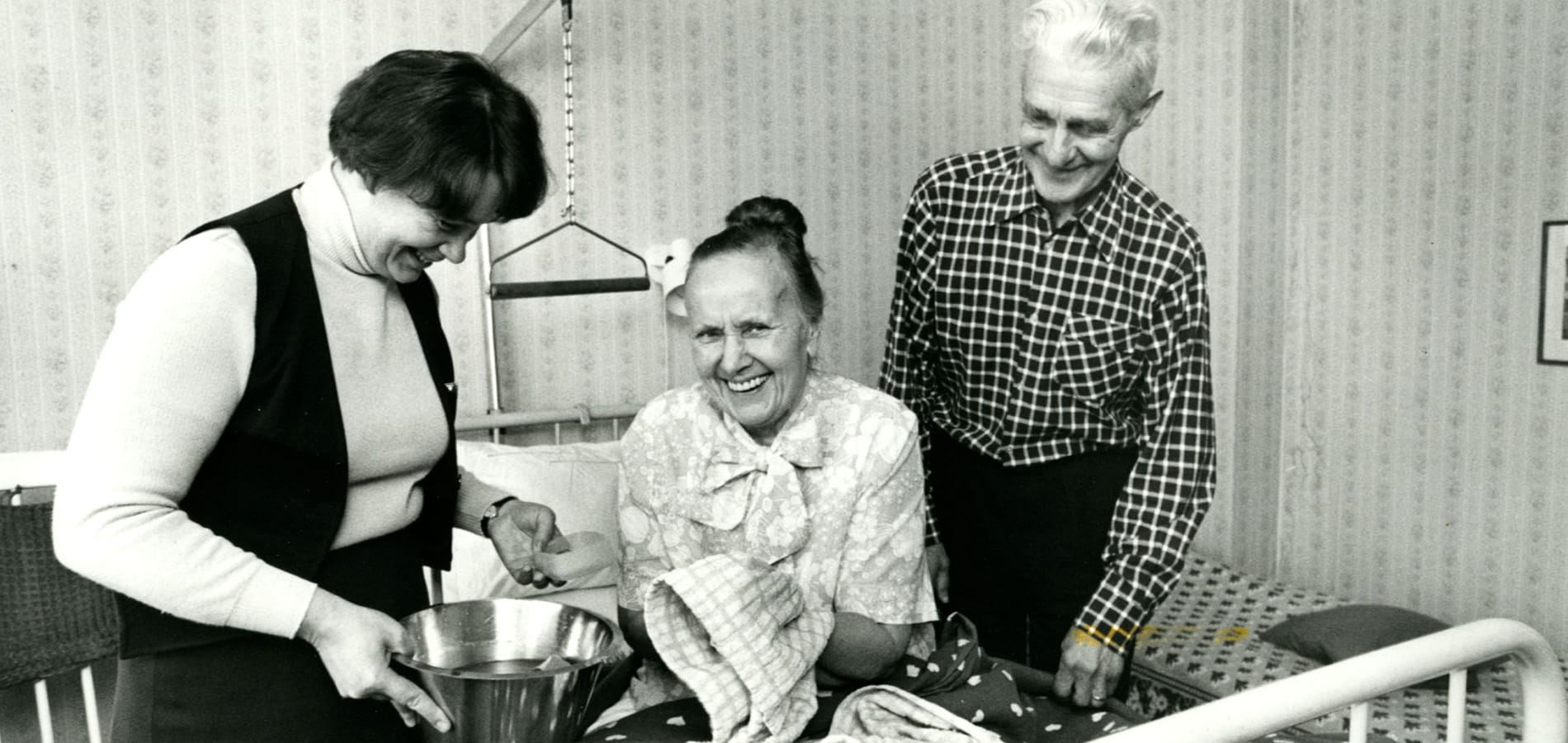The first radiotherapy units (‘radium homes’) started operating in the 1950s.
Statistical work on cancer developed in a major way during the same decade, with the establishment of the Finnish Cancer Registry in connection with the CSF. At this time too, the first provincial cancer associations started operating at local level. Patient organisations were established in the early 1960s. The CSF sold its radium homes to municipalities in the 1960s and 1970s, when radiotherapy finally became part of public healthcare.
The CSF increased its cancer prevention activities in the 1960s. It began to campaign actively for reducing smoking. This work reached a peak in 1976 when Parliament passed the tobacco control law. Anti-tobacco activities have continued apace over the years. The numbers of people who smoke have decreased down the decades. In the 1920s, 70 per cent of Finnish men were smokers. By the 2010s this figure had dropped to 19 per cent. The decrease in smoking is reflected in disease statistics. The figures for cases of lung cancer started to decline in the 1970s.
The mass screenings for cancer prevention, started in 1963, significantly reduced the numbers of people with cervical cancer. The mass-screening programme began to include mammography screening in 1987.
In the 1970s the CSF made progress in patient care by developing systematic rehabilitation courses. Hospice care finally started up in Finland in the 1980s, at the initiative of the CSF, with the establishment of the Pirkanmaa nursing home in Tampere and the Terhokoti nursing home in Helsinki. Knowledge of symptomatic treatment also began to gain ground. The CSF took part in the financing of a professorship of palliative care.
In the 1990s,the Finnish Cancer Registry began researching new screening methods. Most of the research has been done on developing the method of prostate cancer screening using the PSA test. Colorectal cancer screening tests started in 2004. The Cancer Registry has been a world pioneer in conducting large-scale screening research.
The role of health promotion in the CSF’s work has increased over the years. Reducing smoking in particular among youth has been a strong focal point. In recent years, the CSF has highlighted the importance of healthy nutrition and regular exercise in the prevention of cancer and other chronic diseases.
Since the 2000s, Finnish cancer mortality has been one of the smallest in Europe and treatment outcomes among the very best. Cancer is nevertheless a challenge both to people individually and to society. It is important that research information on cancer prevention and the most effective forms of treatment are available to everyone. With the ageing of the baby boom generation, cancer is becoming more widespread and increasingly more people will get the disease. People with cancer need a network of community support and a range of services. Proper pain relief at the end-of-life care is one of the challenges to which society will have to be more responsive.
